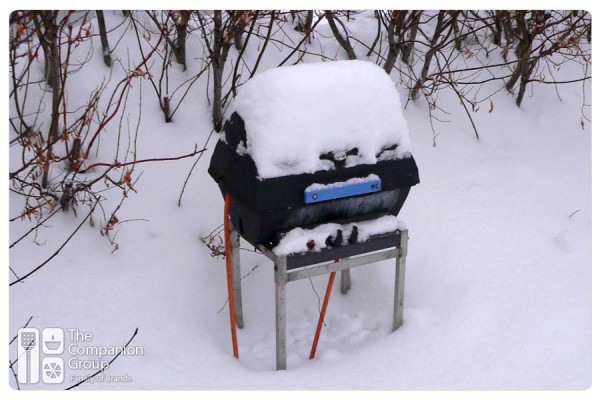Four Tips for Cold-Weather Grilling This Winter
Whether the weather is hot, or whether the weather is cold, it’s always grilling season! After all, you don’t want to deprive yourself of delicious grilled food just because of some adverse outdoor conditions. Still, you will need to take into account the changing environment, and so here are four tips for cold-weather grilling this winter.
Dress for the Occasion
One thing commonly overlooked in regards to cooking is clothing. It may sound simple or unrelated, but most people don’t consider what they’re wearing while they cook. By the same token, everyone has his or her own idea for bundling up. But when it comes to cooking, there are a few important things to consider:
- If you’re using gloves, try to select a pair that provides warmth without restricting the function of your fingers. Cooking requires all ten fingers most of the time, so choose a pair that keeps you warm while allowing a full range of motion.
- Ditch the scarf, or anything that hangs or dangles. Items like these have a chance of snagging on things, or worse, swaying too close to the fire!
- Aprons are still a great idea, even over that thick winter coat. Not only will it keep your hard-to-clean winter parka free of food, but it also helps to keep flammable pieces away from the fire.
Maintenance
As we’re midway into winter already, I can bet that there are backyard grills across the country in need of some tender loving care. If you haven’t already, fully inspect and clean your grill before its first winter use. The process should begin with some general cleaning; grill grates, flame tamers, burners, and the grease tray all need to be cleaned and looked over before you cook. Check for leaks and follow up with a test fire to burn off anything you couldn’t get clean with your best grill cleaning tools.
Timing is Everything
Timing, one of the fundamentals of cooking, is another thing to consider when cooking in cold weather. Colder weather means a longer preheat time, the need for more cooking fuel, and possibly longer cooking times for your food.
If you’re using charcoal, plan on buying that extra bag of briquettes to properly feed your fire throughout the winter. Also, consider using a few pieces of mesquite lump charcoal mixed in with your briquettes. Mesquite coals burn hotter than regular briquettes and will turn up the heat in even the coldest of conditions.
For those of you cooking with gas, an extra tank of propane is a great idea. You should also note that minimizing time with the grill hood open will help you to cook as quickly as you can in the summer. If you still can’t seem to get your grill hot enough, try turning on your rotisserie burner (if you have one). The added thermal output from the burner can give you those extra few degrees right when you need them.
To and From the Grill
Aside from wardrobe, there’s another important obstacle to consider with cold weather cooking. Ask yourself “Can I take this rack of ribs from the grill and to the kitchen without slipping on ice?” Make a quick walkthrough of the path from your kitchen to your backyard grill. Are there any objects in the way? Is there ice or snow that could cause me to trip and fall? You want to eat those ribs, not wear them! If you need to lay down some rock salt, now is the time, because nothing will ruin your gathering faster than a catastrophic slip while transporting dinner to or from the grill.
So what are you waiting for? Bundle up, grab a mug of hot cocoa (with just a hint of schnapps!), and show your guests that winter won’t stop you from serving that delicious smoked brisket you’re famous for. After all, what better time is there to enjoy deliciously filling and comforting grilled foods than in the heart of winter?






No comments yet.